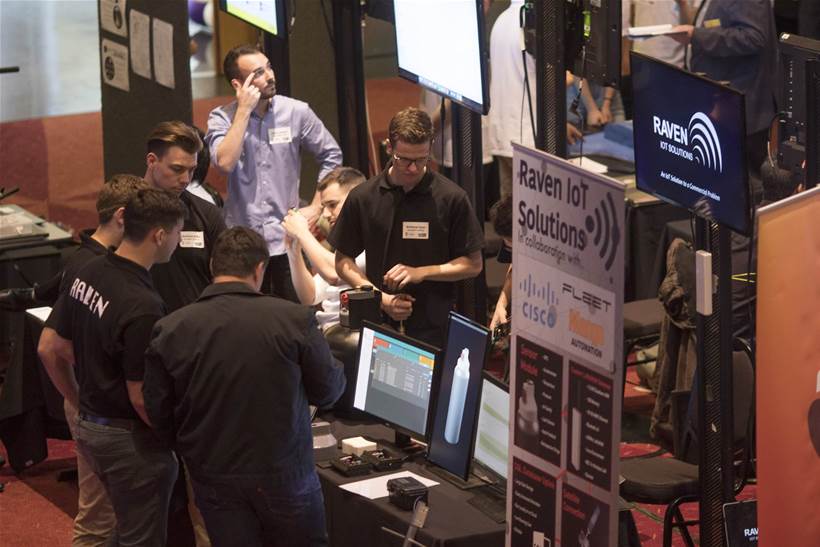A team of engineering students from the University of New South Wales has won the university’s Maker Games challenge, developing a complete IoT system for monitoring gas bottles in seven weeks.
The challenge was set by nine companies: Cisco, Commonwealth Bank, Telstra, Transurban, Phillips, WSP, Westfield, Rebel Sport and Vertiv Co.
From 115 pitches, they selected 17 teams of four to six students whose proposals they wanted to take forward and mentor. They then worked with the teams over seven weeks to help refine their ideas.
The winning team, Team Raven, scores an all-expenses paid trip to Silicon Valley.
The team comprised Henry Blumentals, Matthew Eyles, Vanja Videnovic, Michael Irwin and Matthew Buffa. They combined their different specialities in computer science, mechantronics, aerospace and renewable energy engineering to develop a working prototype for Cisco, and tested it by moving a gas cylinder around UNSW’s Kensington campus and tracking it via a low-power (LoRaWAN) network.
The cylinder-mounted unit replaced the existing valve on the gas cylinder and contained a gyroscope, GPS module and temperature and pressure sensors and a LoRaWAN transceiver.
Blumentals told IoT Hub that the team saw two distinct applications for the system: tracking gas bottles within a facility such as a hospital or a university for the facility owner, and tracking bottles over a wide area for a supplier of bottled gases.
Data transmitted by the gas bottle monitors are fed into the Mango IoT platform developed by Colorado based Infinite Automation. The company describes Mango as “an end-to-end solution providing everything you need to build & deploy a modern building automation, data acquisition, IIoT, or SCADA system.”
Blumentals, who developed the dashboard of the system, said he had previously used Mango for dashboard development.
The prototype uses pressure sensors and temperature sensors to measure both the ambient temperature of the bottle and the temperature of the gas as its exits. As the gas expands it cools and these readings can be used as proxies to estimate the amount of gas remaining, Blumentals said.
The gyroscope provides information on the disposition of the bottle: handling instructions for some gases stipulated that bottles must be kept upright.
The team is now looking at where to take its idea. “We would like to implement a pilot programme with the prototype,” Blumentals said. “The university has a lot of gas bottles and would be quite interested. We are open to ideas.
“We would like to improve the prototype before we make it commercially viable. We would like to have a gas flow turbine to measure gas flow and to charge the battery.”
He said the lithium ion battery used in the prototype – which has to power the GPS receiver and the gyroscope in addition to the LoRaWAN radio — had a life of about two years, but many gas bottles could remain in use for five years or more.
Maker Games teaches engineers to be entrepreneurs
Maker Games is the brainchild of UNSW’s dean of engineering, Mark Hoffman. He said it was the best way you train engineers to be entrepreneurial and innovative in solving real world problems.
“We’re trying to teach the ability to ask the right questions, so they can themselves develop the right solutions,” he said. “Unless you’re actually working and trying to solve problems, it’s difficult to know what questions to ask.
“The Maker Games is perfect for this – we match industry partners who have really wicked problems, with the brightest engineering students, who are keen to apply the knowledge they’ve gained at UNSW to solving real world problems.”
Danielle Neale, entrepreneur-in-residence at UNSW Engineering who co-ordinated the Maker Games, said it had been most successful undergraduate exercise of its kind.
“Students have taken up difficult industry challenges, and done so with gusto. Some of the ideas are really innovative, and those ideas are getting prototyped into products and solutions that are coming to life before our eyes.
“Based on the success of the showcase, we have had a number of exciting enquires from potential partners and investors who want to be involved in the Maker Games in 2018 and beyond.”







